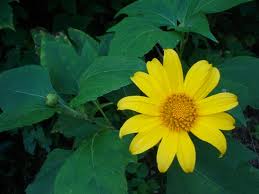|
This group consists of two tuberous-rooted, perennial, tropical vines belonging to the Pea or Bean family, Leguminosae. They are natives of South America and Mexico. These vines can climb up to 20 feet and have 3-parted leaves. They produce pretty sprays of green, blue, purple, white, or mauve flowers, which are followed by poisonous seedpods, 6 to 8 inches long. P. erosus is grown for its edible root known as Jicama. Other common names include Mexican Potato, Mexican Turnip, Sakula, Xiquima and Yam Bean. Jicama is a common vegetable on the West Coast and throughout the Southwest where Mexican food is popular; it is also grown in parts of the Orient. The heavy root is turnip-shaped with a fibrous, brown skin, which must be completely peeled off. The flesh is white, juicy, crisp and somewhat sweet; it may be eaten raw in salads and dips and marinated in fruit juices. Jicamas may also be steamed, baked, boiled, fried, mashed, saut�ed, stir-fried, or simmered in stews. The root's weight varies from just a few ounces to 6 pounds. Jicamas are a low-fat, high protein food containing about 10% starch and 1% protein. This species produces beautiful sprays of flowers that resemble butterflies; however, this is rarely seen in most of the U.S. because the vines are usually killed by frost before they bloom.
Pot Cultivation
These plants are hardy from zones 10 to 12. Very large roots can only be produced after several years of growth; however, small roots taste better than old, large roots, which tend to be fibrous. The roots won't reach a worthwhile size unless they're grown in nearly frost-free regions. The plants should be spaced 12 inches apart. The sprays of flowers should be cut off to induce the energy of the plant into the root's formation. The tubers should be harvested before the first killing frost of the winter. This should be 8 to 10 months after seeds were sown in early spring. Each plant produces one tuber.
Propagation
Seeds may be sown in sandy soil in a warm, dry area. There should be 12 inches of space between plants/
 |
 |
P. erosus |
P. ferrugineus |
Species
- P. erosus;
- P. ferrugineus.
|